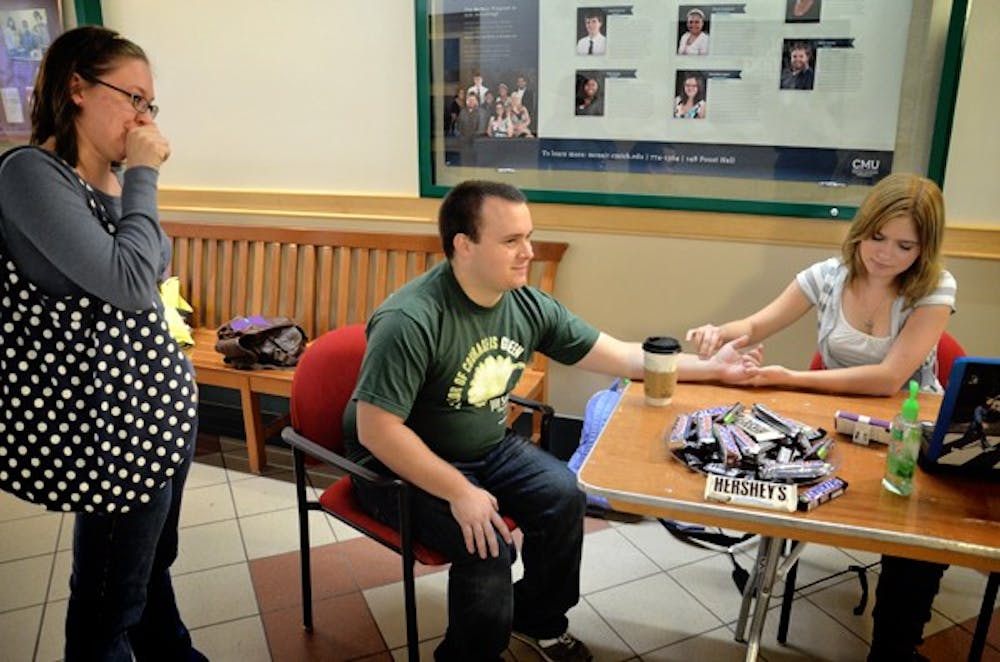Student experiments with heart rates when talking about significant other

A student is putting the popular phrase "You make my heart skip a beat" to the test.
Mount Pleasant sophomore Brooke Scribner sat in the main hallway of the Charles V. Park Library Tuesday from 2 to 5:30 p.m. to monitor participants' heart rates as they talked about a significant other or a person in which he or she is interested.
As a project for her BIO 500: Biological Statistics class, Scribner said this is a fast, easy to way to find quick results for a popular question.
She first started the experiment by asking participants a mundane question such as, "What did you have for breakfast?"
Brighton junior William Joseph stopped by the table, and, as Scribner took his pulse, he described his calculus class.
At this point, his heart rate was 72 beats per minute.
When Joseph started talking about Katie, a girl he is interested in, his pulse increased by eight beats per minute.
"I'm not surprised," he said. "I imagine it's typical."
Twenty-five people participated in her experiment, and 22 people had a heart rate that increased per minute. One person's heart rate stayed constant, and two people had a decreasing rate change.
"The starting pulse rate is different for everyone, usually around 56 to 104 beats per minute," she said.
According to her data, the average rate of change per minute is 14 beats. Most people thought it would increase, but not as drastically, she said.
Males' heart rate per minute increased by an average of 17.2 beats, while females increased by 10 beats.
Scribner said there is not a significant correlation between heart rate and the amount of time a participant has been in a relationship.
"A participant that has been married for 10 years had a heart rate that increased by 24 beats a minute," she said. "The results are sometimes not what you expect."
Ubly sophomore Laura Warner's heart rate increased by 12 beats a minute.
"When I started talking about how he's tall, his dark hair and blue eyes, I could feel my heart beat faster," she said.
Warner said she expected it to increase.
"I guess that answers the question," she said. "He does make my heart beat faster"



